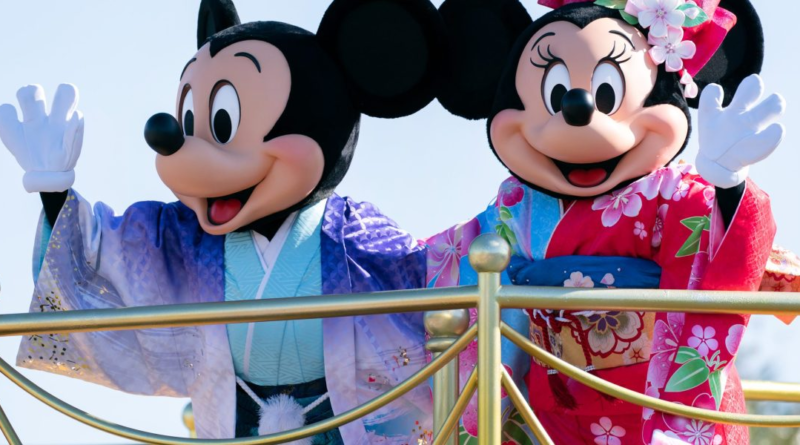Disney helpless to prevent spate of knife-wielding Mickey Mouse slasher flicks after losing copyright protection for its iconic mascot
When this year’s low-budget horror romp Mickey’s Mouse Trap debuts, featuring a ghoulish killer in the form of the beloved children’s character, Disney CEO Bob Iger will be powerless to stop it.
The media and entertainment conglomerate that grew rich off family-friendly fare has guarded its iconic mascot for nearly a century, but it lost some of its intellectual property rights under the Copyright Law at the start of this year after twice successfully extending them through acts of Congress.
Almost anyone can now profit off founder Walt Disney’s earliest creation, although they are limited in exactly how they can do it. The so-called Mickey Mouse Protection Act has involved intense lobbying from Disney over the decades as it has sought to keep as much of its iconic logo out of the public domain as possible, so only the original version of Mickey that first debuted in a seven-minute animated short from 1928 can now be adapted. Later evolutions of the character, which for example added color or his signature high-pitched voice, still remain protected.
“It’s Steamboat Willie’s Mickey Mouse murdering people,” film director Jamie Bailey said in a statement to The Hollywood Reporter, describing his concept as “ridiculous.” “We ran with it and had fun doing it, and I think it shows.”
And that’s not even the only B-movie set to feature a knife-wielding Mickey, as another is being prepped by director Stephen LaMorte. Video game makers are also getting in on the fun with the survival horror title Infestation: Origins featuring a blood-spattered version of the signature character.
“Disney is going to lose millions and a valuable copyright that it’s been able to leverage on all sorts of merchandise,” warned Donald Harris, an associate dean at Temple’s Beasley School of Law, in an interview with the university’s news site.
Iger’s hands are tied since it lost exclusive copyright protection of the original character (and his love interest Minnie Mouse) now that 95 years have passed since Steamboat Willie. English author A.A. Milne’s Winnie the Pooh character, whose rights also belong to Disney, already received the low-budget slasher treatment last year.
The somewhat arbitrary-sounding length arose precisely because Disney repeatedly lobbied Congress to extend the protection. In 1998, then-CEO Michael Eisner flew into Washington to dine personally with the Senate majority leader. Shortly thereafter what was nicknamed the Mickey Mouse Protection Act passed both houses, resulting in the current legal limit.
Donald Duck, Goofy, and Pluto still protected
Why horror, then? The genre lends itself ideally to the expiration of the copyright protection. Steamboat Willie’s Mickey couldn’t speak, and a silent killer bearing a mask with more grotesque features of the recognizable mouse’s visage is easier to get away with. Certain guardrails still apply under trademark law—enough at least to raise the risk of a costly lawsuit.
“With the Winnie the Pooh horror movie, what you saw is them very much not using any visuals that were similar to things that are still under copyright, because some of the books were made later,” said Harvard professor Rebecca Tushnet in an October interview with Harvard Law Today.
Notably South Park was already able to portray Mickey back in 2009 as a foul-mouthed bully selling sex to underage girls with the help of Disney’s Jonas Brothers music act. But creators Trey Parker and Matt Stone were able to by rely on a legal clause allowing for what’s called “fair use,” which can include obvious parodies or political commentary.
In a statement last month to the Associated Press, Disney said it would continue to guard its rights to the more modern versions of its iconic mascot that came later. Meanwhile other household names like Donald Duck, Goofy, and Pluto remain protected—for now.
CEO Bob Iger is already busy putting fires out left, right, and center at Disney, however. His company offered up one commercial bomb after the other last year; he’s waging a public feud with Elon Musk, activist investor Nelson Peltz aims to usurp control; and now its Lucasfilm studio has sparked fresh controversy over Disney’s ailing Star Wars franchise.
A couple of low-budget slasher flicks capitalizing on the beloved mascot may be the least of his immediate worries.



